Eco-friendly alternatives to everyday items can provide a sense of living in nature’s lap, reducing plastic use.
They also make sustainable swaps to reduce waste, conserve resources, and create a greener household.
If you’ve recently built a home or want to shift from plastic piles to natural household items, here is a practical guide for you!
1. Reusable Beeswax Wraps
You can replace the traditional plastic wraps with beeswax and cloth wraps for food storage.
While plastic wrap is flimsy, difficult to use, and single-use, the beeswax technology can allow you to wash it in cold water with dish soap and reuse it.
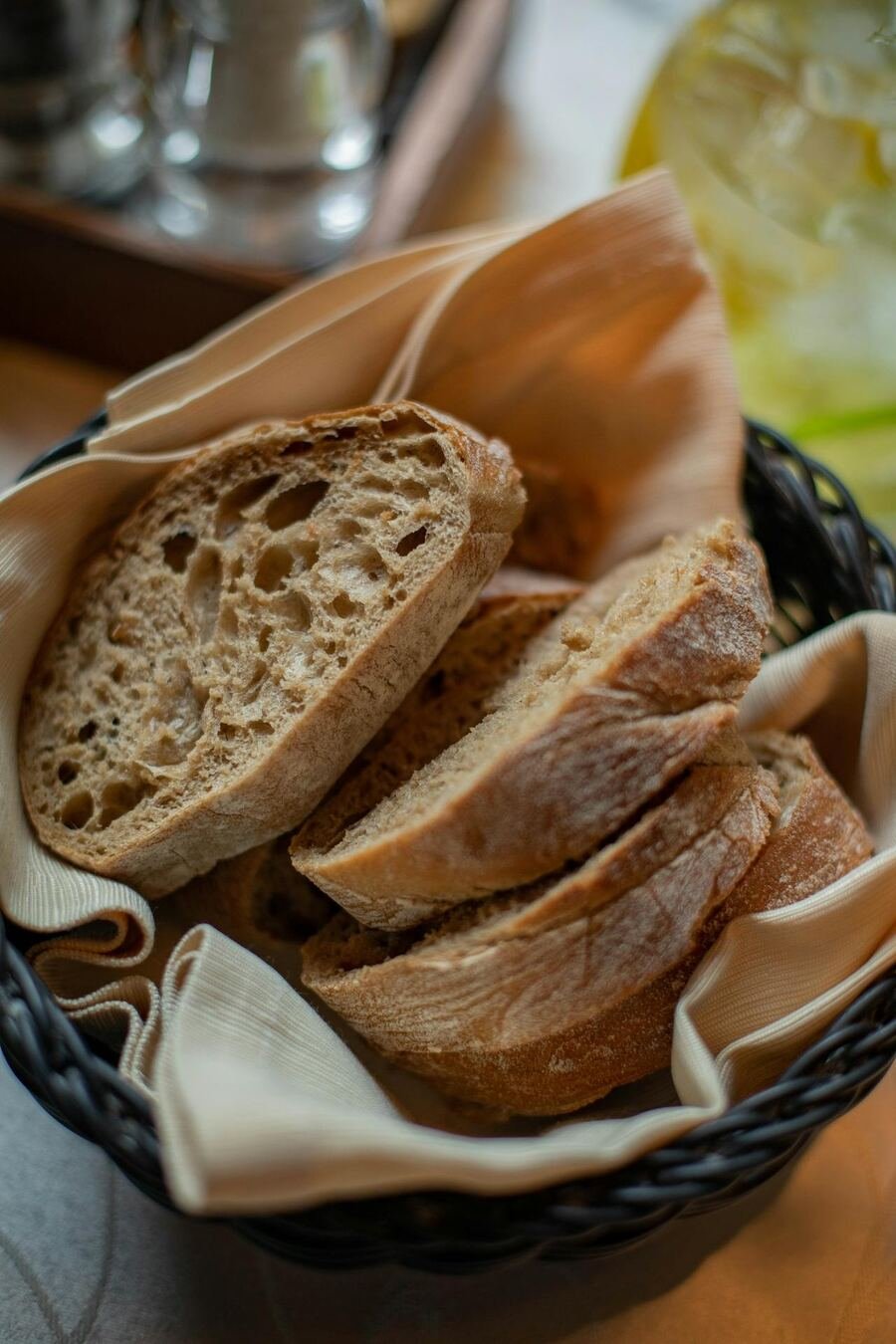
You can place reusable wraps over the food container easily and mold them to the shape of the opening.
The heat of your hand is enough to mold the wraps firmly in place. Simply wash, reuse, and throw them in the compost bin when they are old enough.
2. Compostable Dish Sponges and Brushes
Unlike conventional kitchen sponges that contain plastic, compostable dish sponges use natural materials such as bamboo, loofah, and hessian.
Made of cellulose fiber, they work like the traditional ones with heavy-duty, compatible, and durable features.
After using a sponge, rinse it with hot water, wring it, and hang it to dry. It will become biodegradable after two weeks of use. Dish
Besides you can also use brushes made of wood and natural fibers such as coconut husks, beachwood, and agave.
These brushes include a pot scrubber, short-handled brush, sponge cloth, vegetable scrubber, and bamboo bottle brush.
3. Stainless Steel or Glass Food Storage Containers
Chemicals and harmful compounds can leak from the plastic containers to your food, so find eco-friendly alternatives to everyday items.
Made of alloys of iron, carbon, chromium, and nickel, the stainless steel storage containers are durable, non-toxic, and can withstand extreme temperatures.
You can place them in the freezer with no worries. 😊
Though a bit risky to break, glass food storage containers don’t react to chemicals, making your food safe and long-lasting.
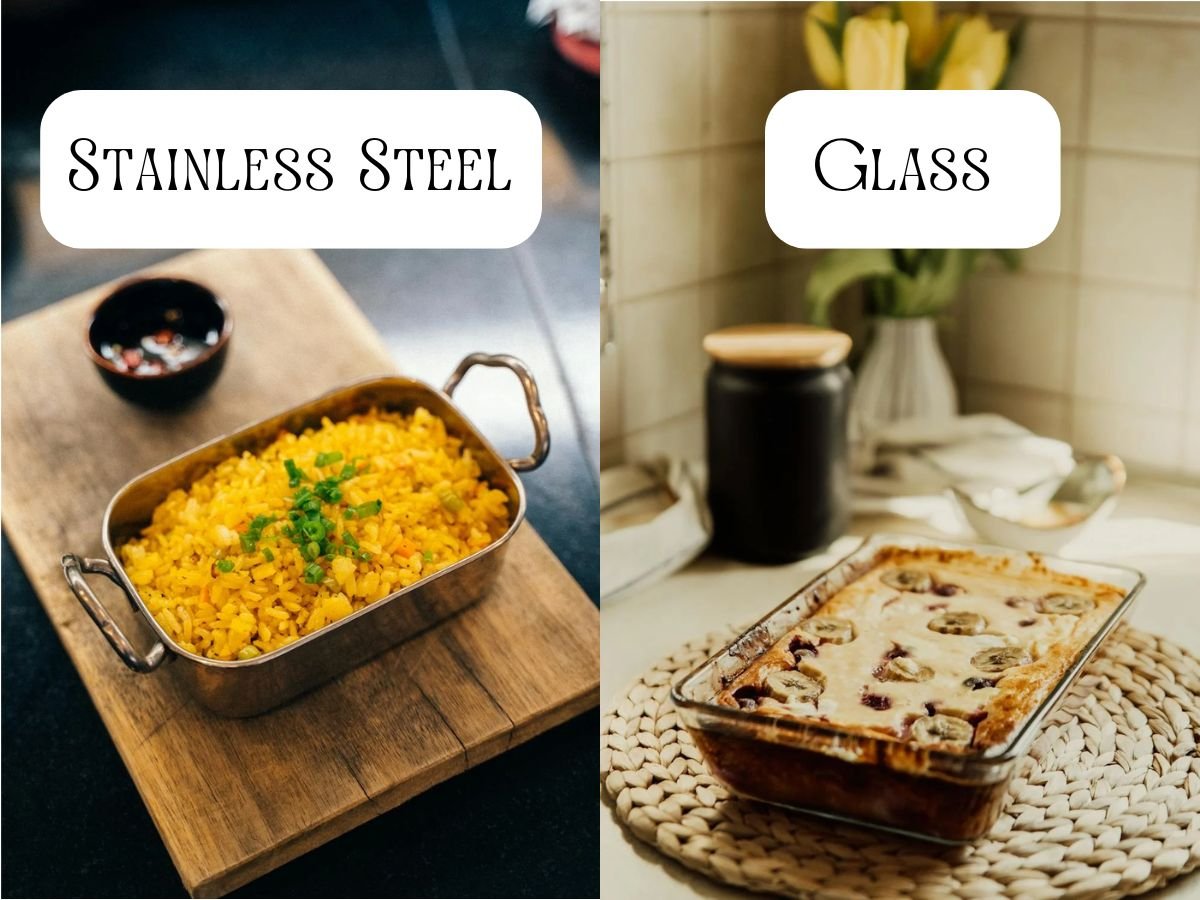
Easy to clean, these glassware are often used to preserve foods.
4. Silicone Baking Mats
Silicone baking mats can replace parchment paper or aluminum foil. Due to their non-stick qualities, they are good for baking messy or sticky concoctions.
This helps keep baking pans clean.
These baking mates are made of food-grade silicone and fiberglass. You can use them for baking cookies, kneading dough, and baking a cake at home.
Versatile for uses, many homesteaders put the mats on a tray to heat food in the oven.
Besides, you can cover baked foods in the oven to ensure they rise evenly.
5. Reusable Coffee Filters and Pods
Good news for coffee lovers! You can bring reusable coffee filters home. By reusable filters, I mean metal and cloth filters.
Unlike pepper filters, these reusable coffee filters prevent the grounds from passing through without absorbing the oils, giving you rich flavor.
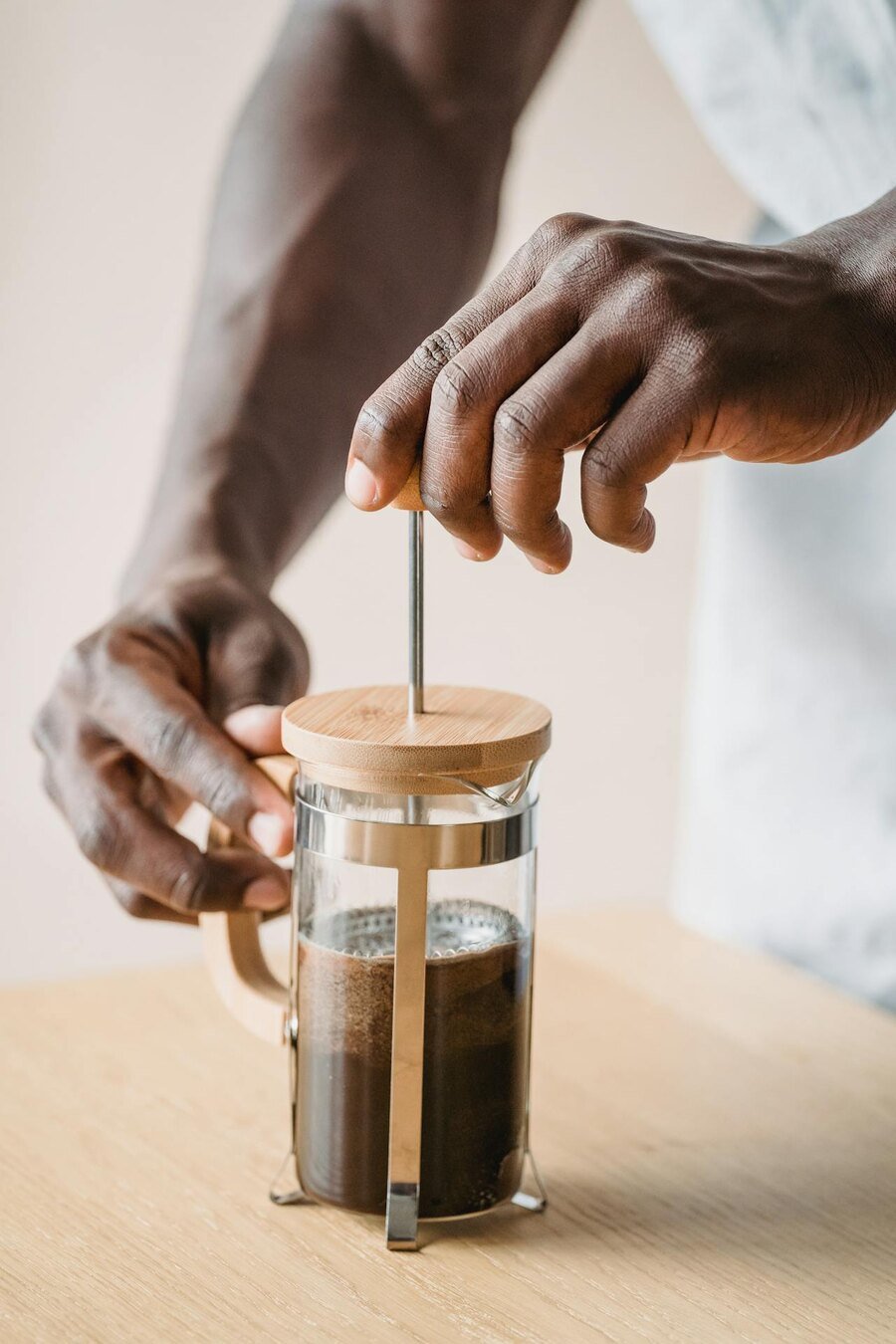
Though pepper filters are decomposable, they cannot be used more than once and create lots of waste in the kitchen.
Also, many people experience inferior taste in paper coffee pods compared to those made of metal or stainless steel.
6. Bamboo Toothbrushes
Before the invention of toothbrushes, ancient people used tender branches of neem or bamboo to clean their teeth.
Now, bamboo brushes are sustainable and eco-friendly tooth cleaners with anti-bacterial properties.
These are eco-friendly alternatives to plastic toothbrushes in everyday items.
They are gentle on gums, reducing the risk of irritation and injury to soft oral tissues.
You can add homemade toothpaste or charcoal powder to the bristles of bamboo toothbrushes. After using them, remember to rinse and dry them.
These plant-based toothbrushes can last for 2-4 months.
7. Eco-Friendly Dental Floss
Alternatives to everyday items like plastic or nylon dental floss include eco-friendly floss made of bamboo, silk, corn starch, cotton, and beeswax.
Infuse charcoal in the natural floss if your teeth require good cleaning.
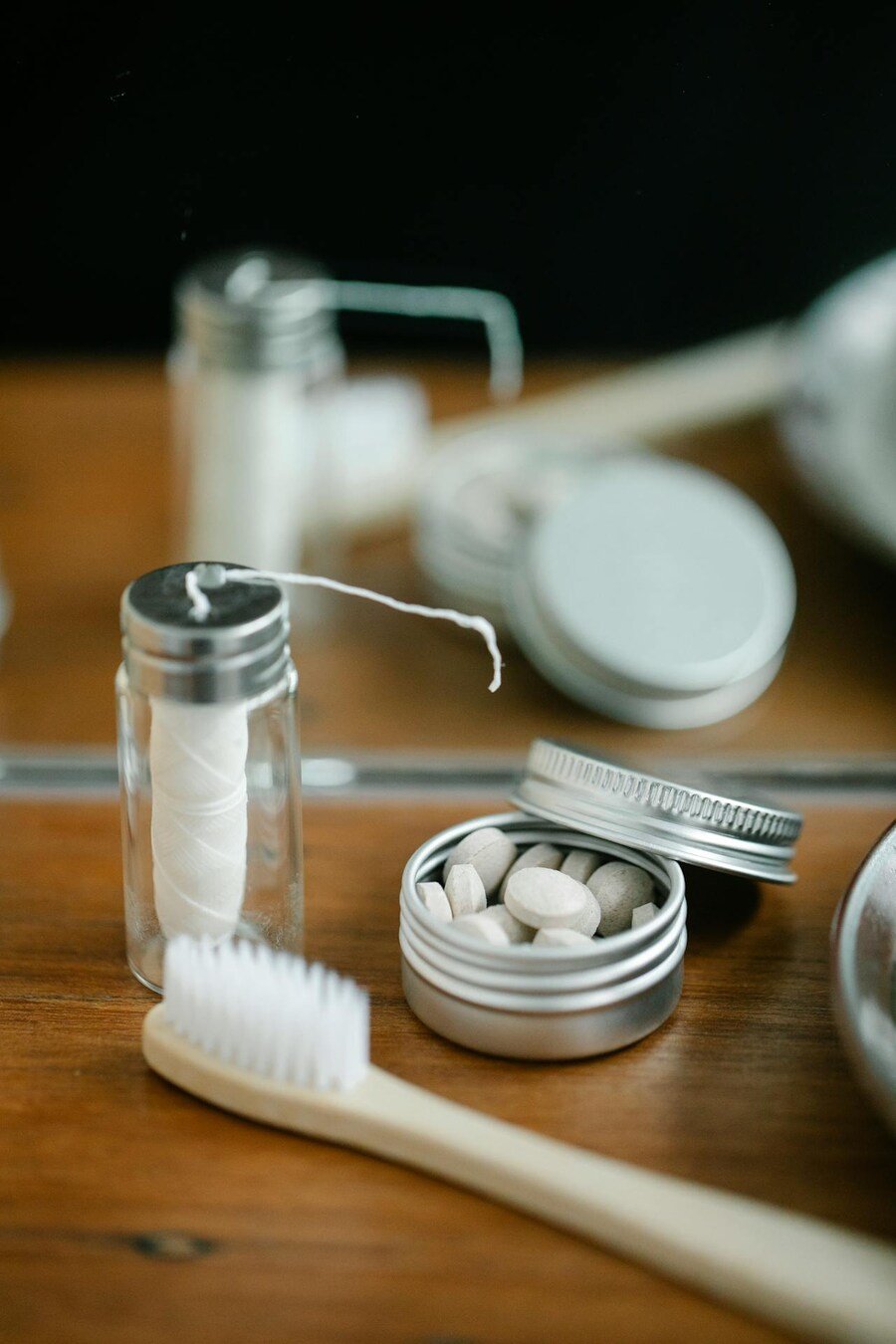
You can easily make floss made from pure cotton at home. Also, don’t forget to compost the decomposing floss pieces for your garden.
Other eco-friendly dental floss alternatives are reusable floss picks made of recycled paper and water flossers.
8. Reusable Cotton Rounds or Cloth Pads
My momma often creates homemade makeup for herself with plant-based materials.
If you also have a makeup routine, you can use reusable cotton rounds. These kits are washable, eco-friendly pads you can use to remove makeup, cleanse your face, apply toner, and more.
You can wash and reuse it.
Besides, cloth pads can be used to make reusable menstrual hygiene products. You can make it yourself if you have some tailoring skills.
9. Natural Soap Bars
Natural soap is a traditional method of soapmaking that uses a combination of natural ingredients, such as oils and fats.
You can also add other organic elements, including Lye, natural colorants, and fragrances such as lavender, eucalyptus, and early hues.
Unlike market-bought soaps, these soap bars lack harsh chemicals, preventing the risk of skin harm.
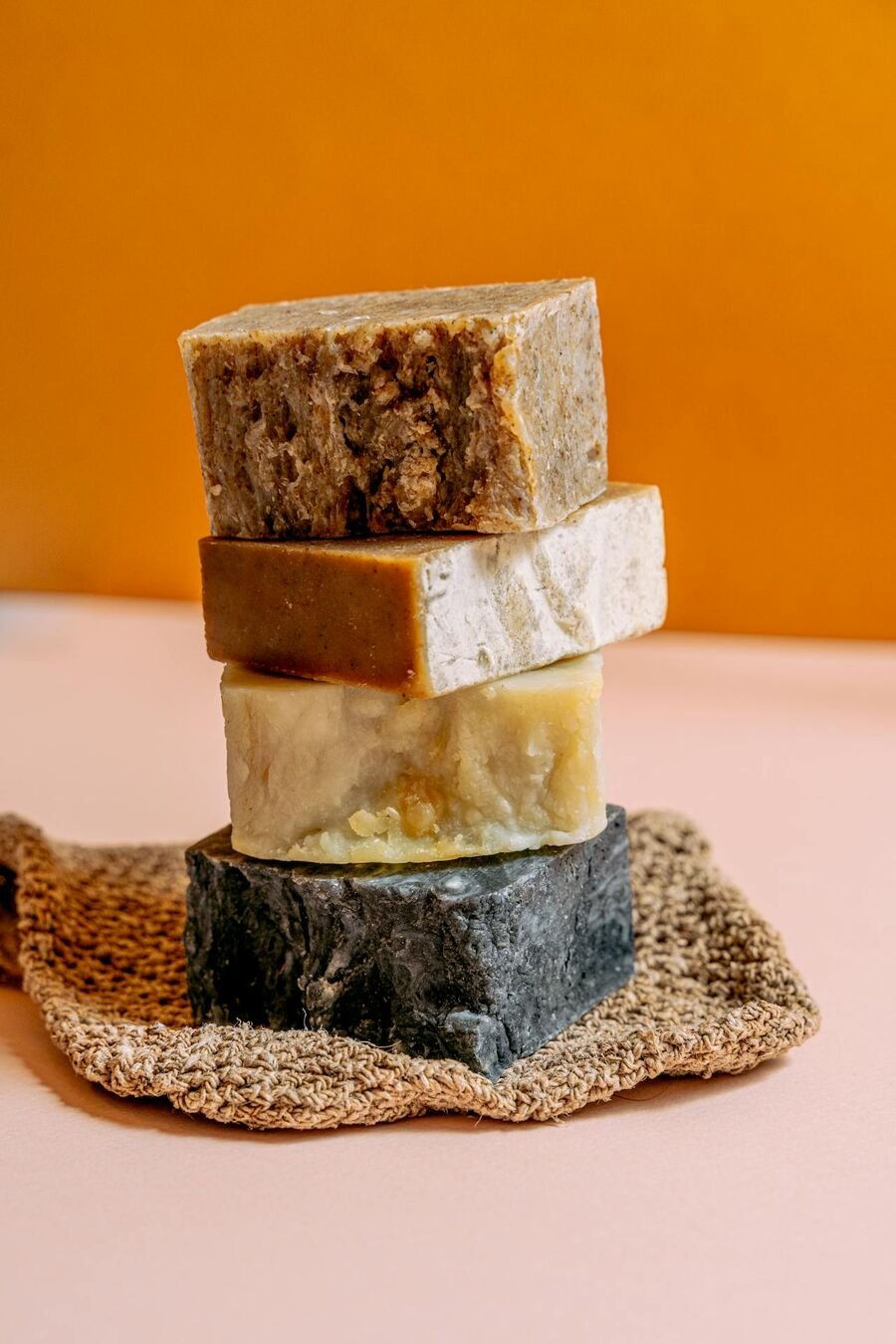
First, prepare the natural soap base and melt it in the oven, depending on the amount measured. Add coloring and scent, and pour the mixed liquid into the mold.
After leaving 1-2 hours to set, de-mold the soap. Now, you’re ready to use the natural soap in your bathroom.
10. Refillable Shampoo and Conditioner Bottles
After soapmaking, you may also like to learn to prepare natural shampoo and conditioner at home.
Besides the liquid, the containers to put in must also be refillable and sustainable. So, you can choose a bottle made of aluminum.
Glass bottle is also an option but it is prone to break in the bathroom.
While refilling the shampoo and conditioner bottles, use a funnel to avoid spills and waste.
They are easy to clean. Rinse them with warm water to remove any leftover shampoo or conditioner residue from the exterior of the bottles.
When you feel the bottle is empty, pour water and vinegar into it and rinse again. Now, you’re ready to refill with shampoo or conditioner.
11. DIY Natural Cleaners
To avoid chemical cleaners, you can create simple, cleaner recipes using vinegar, baking soda, and essential oils.
Create a mix of two cups of warm water, a half cup of white vinegar, and a one-fourth cup of extra-virgin olive oil. And pour a mixed liquid into the spray bottle, which has become a dust spray.
It is also easy to make glass cleaner with a solution of equal parts water and distilled white vinegar.
Besides, adding one teaspoon of olive oil or castile soap and a few drops of natural dish soap to the warm water can create a hardwood floor cleaner.
For a natural all-purpose cleaner, mix half a cup of white vinegar, two tablespoons of baking soda, ten drops of tea tree, lavender, or lemon essential oil.
12. Eco-Friendly Cleaning Tablets
Eco-friendly cleaning tablets are made from citric acid, baking soda, essential oil, and other natural ingredients.
They can replace the liquid cleaning solutions that come in plastic bottles.
With dissolvable qualities, these tablets effectively break down dirt, grime, and stains. So, you can use these cleaning tablets
on everything, including hand soap, toilet bowl cleaners, and floor cleaners.
Also, eco-friendly cleaning tablets are easy to use and require no additional tools or equipment.
13. Solar-powered Lights
You can replace the electricity light with solar-powered lights for the outdoor settings.
Solar lighting systems mostly use LED bulbs, requiring no frequent replacement, thus reducing waste.
If properly installed, these lights have an average lifespan of 20,000 hours. Don’t worry—they are easy to install and budget-friendly.
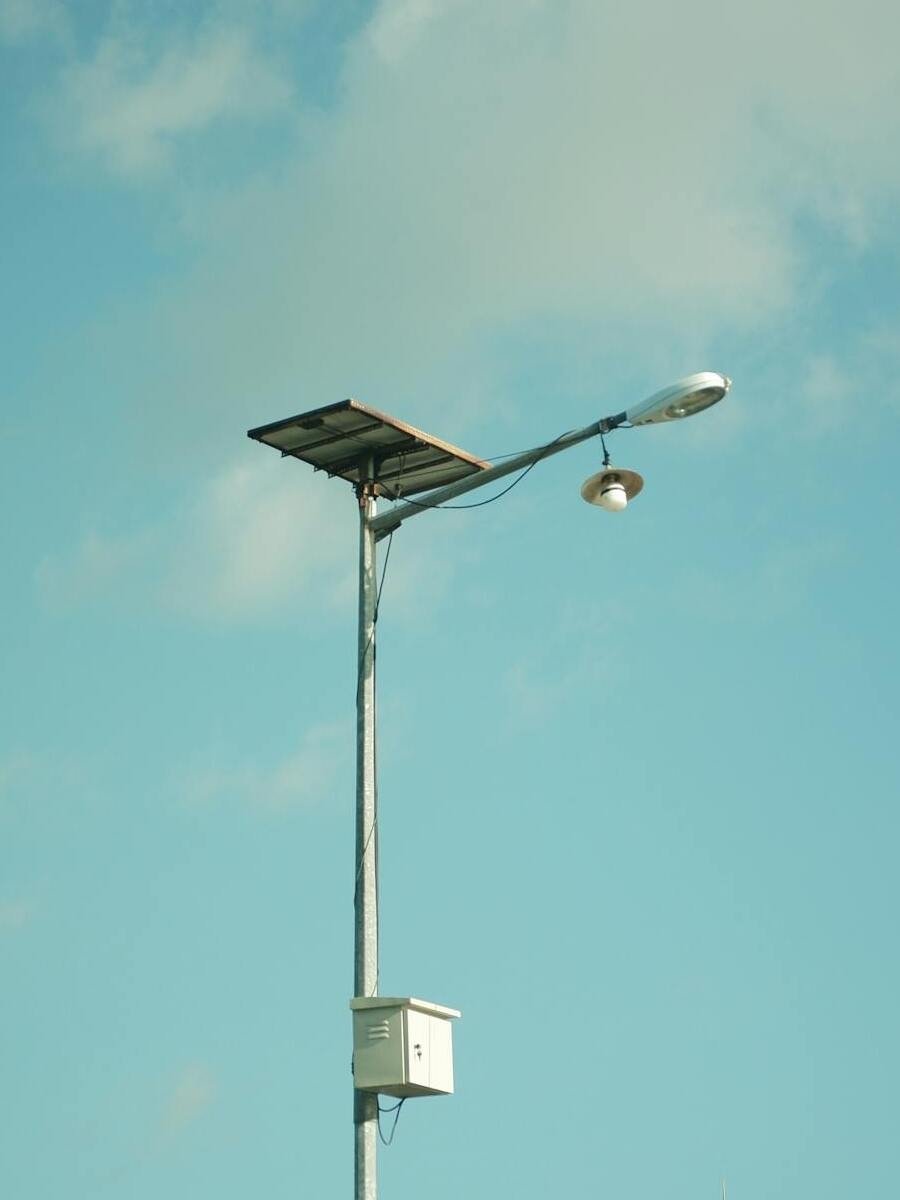
Before randomly purchasing the lights, consult with the professionals as solar panel efficiency and battery capacity can differ the choice.
Also, choose solar-powered lights if you live in a place where sunlight is available enough. Otherwise, you need to depend on the weather.
14. Rechargeable Batteries
Instead of disposable batteries, you can choose rechargeable batteries for high-drain devices and the environment.
These batteries emit 28% less greenhouse gas than disposable batteries and save 11 times their consumption.
The recyclable and rechargeable qualities of these batteries help save resources and reduce waste. You can recharge these types of batteries up to 1000 times.
Also, rechargeable batteries consume non-renewable energies 23 times less than disposable batteries.
While buying, opt for batteries with higher mAh ratings for longer life and a proven track record of environmental responsibility.
15. Compostable Trash Bags
Compostable garbage bags are made from plant-based materials such as vegetable starches, wood pulp, lactic acid, and soy proteins.
They do not contain any toxic elements and break down easily in the composting system through microbial activity to create compost.
The biodegradable ingredients in these bags allow heat and moisture to escape or evaporate.
You can use these bags to line your kitchen container, deposit food scraps, and then place them in the compostable bin.
As they do not compost well in landfills, you need to place them in a special waste system. Consider a place with the right amount of oxygen and airflow.
16. Jute and Seagrass Storage Baskets
I have a couple of jute storage baskets, one for keys outdoors and another for hygiene items in the bathroom.
Unlike plastic baskets, jute and seagrass storage baskets are 100% biodegradable and environmentally friendly, making great eco-friendly alternatives to everyday items.
They also make great home decor items.
Alternatively, you can also go with the other eco-friendly storage baskets made of palm leaves, banana fibers, and grasses like sisal and elephant grass, along with flower dyes.
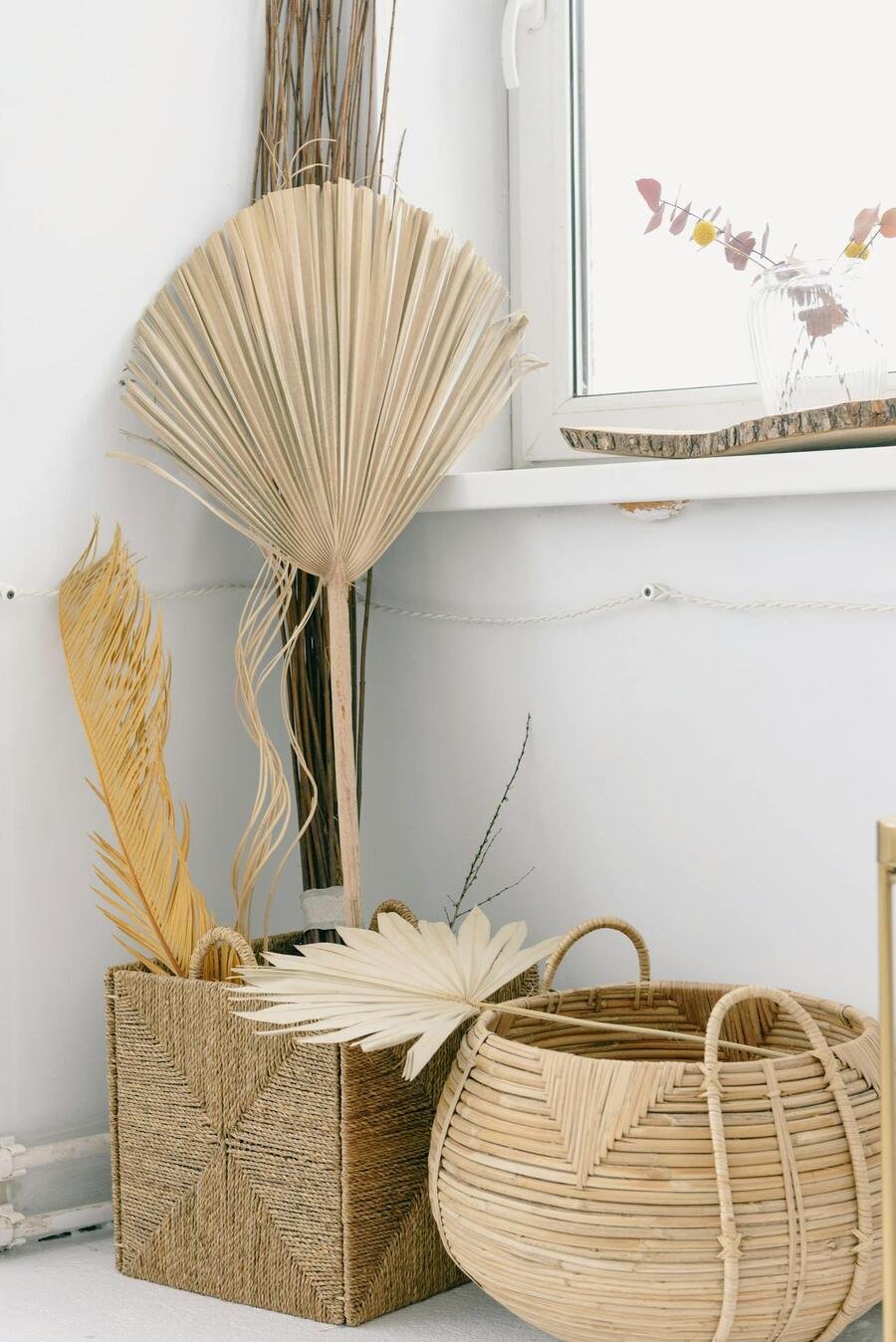
Asian homesteaders are great crafters who make different types of containers made of bamboo.
17. Reusable Razors
While disposable razors are for limited use, reusable or metal razors can be used frequently to reduce waste.
Disposable lasts three to 10 shaves, but last five to 10 shaves can last five to 10 shaves.
Reusable razors include detachable blade cartridges you can refill as needed. You can know the time to refill or replace the blades when they are dull and pull the hair, making you feel rough.
There can be options for choosing the reusable razors with three or five blades. They also come with blade cartridges with built-in shave gel for sensitive skin.
So, you can get one based on the type of blade that works best for your body hair.
18. Biodegradable Cotton Swabs
Traditional ear swabs come with plastic handles and softballs, which are often used for 5 seconds.
You can replace plastic-based swabs with bamboo or paper sticks.
Unlike plastic swabs, these biodegradable cotton swabs are made of natural materials, including organic bamboo and pure cotton.
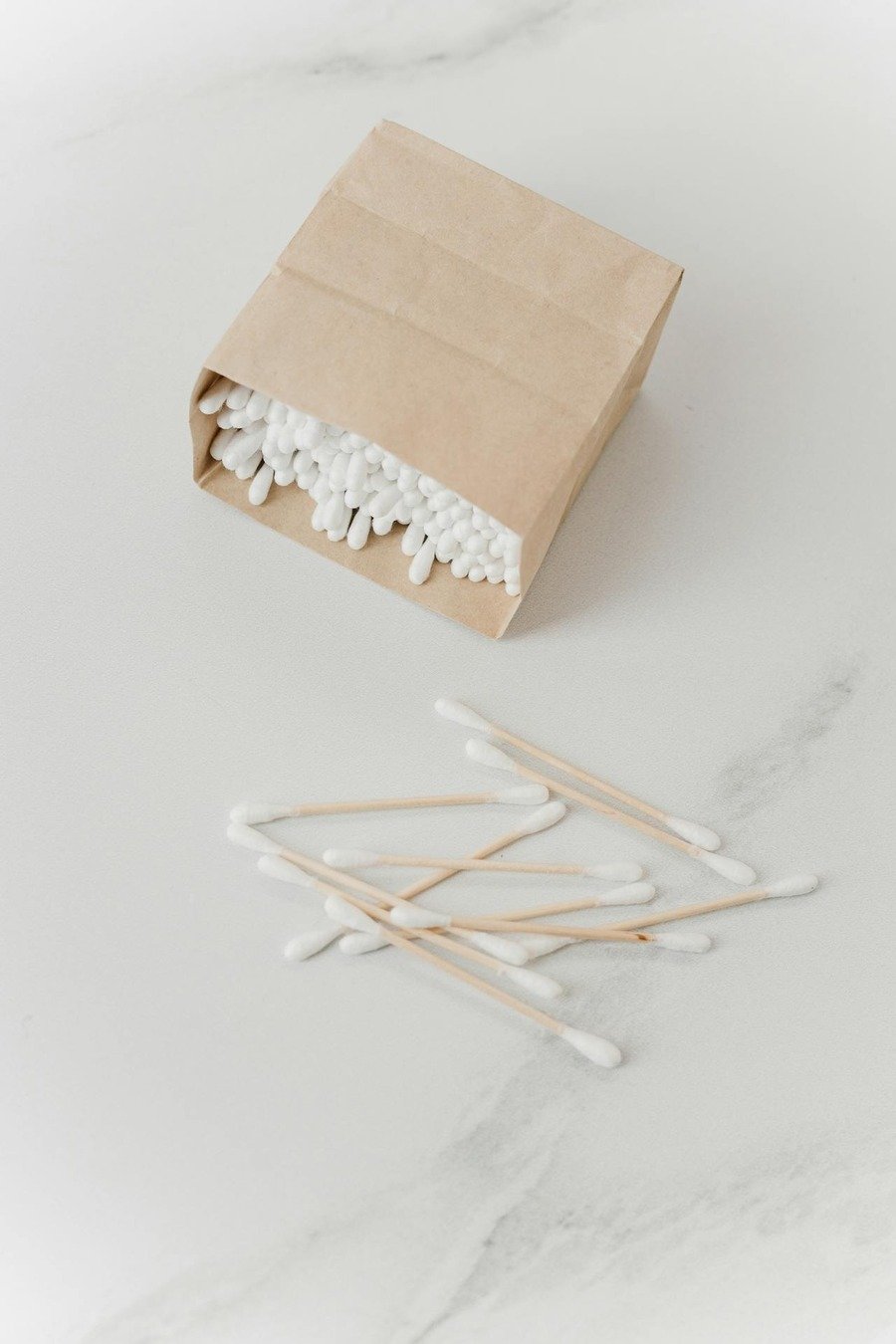
These biodegradable cotton swabs are used for everything, from personal care to craft projects. Many use them for cleaning around the ears, nose, eyes, and outer body parts, which require small and soft kits.
You can use them to apply, remove, and neaten makeup. They are also used during nail polishing.
19. Reusable Shopping Bags
By reusable shopping bags, we mean bamboo bags, h*mp totes, and cotton tote bags.
Unlike single-use paper or plastic shopping bags, reusable shopping bags help reduce waste and aren’t torn easily.
Reusable shopping bags are made of canvas, and natural fibers such as jute, bamboo, h*mp, and cotton, which are eco-friendly as well as easy to handle.
An alternative to natural fibers, upcycled materials also make reusable bags.
You can make DIY reusable bags from leftover scrap fabrics.
20. Eco-Friendly Water Bottles
You can avoid disposable plastic bottles by using eco-friendly water bottles made of stainless steel, glass, and aluminum.
These bottles do not react to the liquid, offering healthy and safe water.
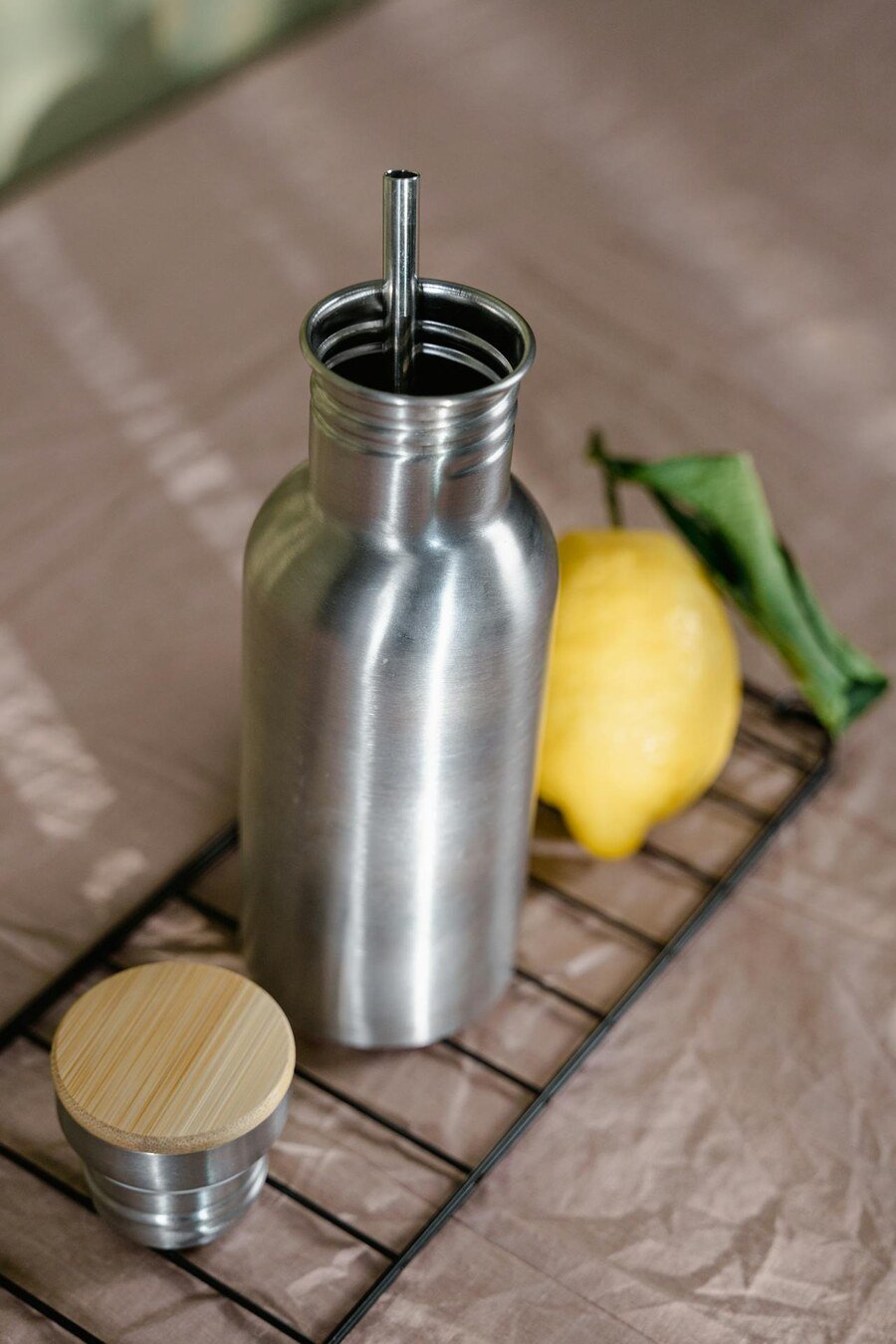
Stainless steel and aluminum bottles are sturdy and shatter-resistant when dropped. So, they are more durable than glass bottles.
Though glass bottles are prone to break, buying a foam-style carrier for them solves the problem.
Unlike others, eco-friendly water bottles make good, sustainable bottles. They are cost-saving with frequent refills.
Besides, you can make 1000+ bamboo items if you are a skilled carpenter.
21. Homemade Toilet Paper
Have you ever heard of the toilet paper plant?
A few environmentalists use this plant at bathroom, without making waste. But I’m not talking about bringing in those toilet paper plant leaves.
It can be a bit uncomfortable for people.
So, you can make a toilet paper at home using natural resources. It looks similar to store bought toilet paper too.
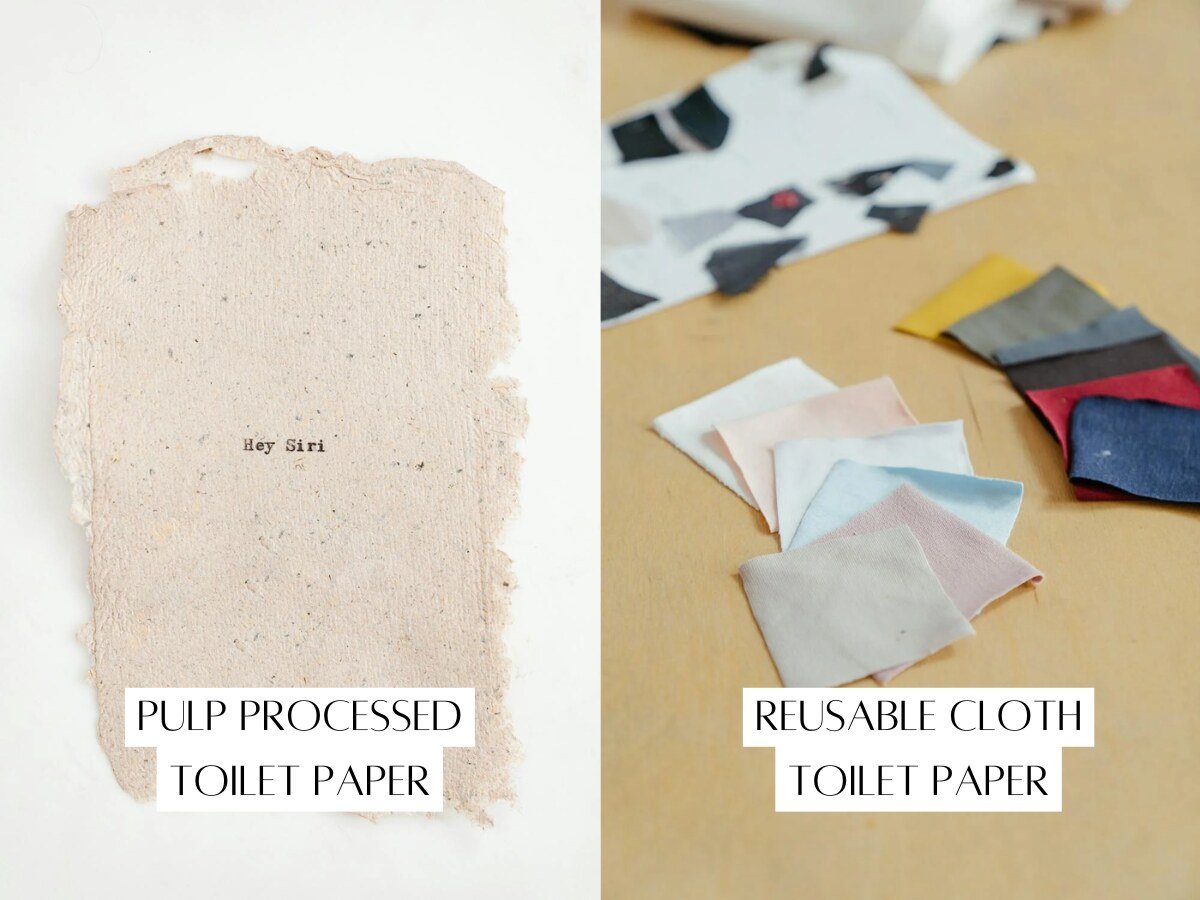
The making process is similar to paper making with the use of scrape papers, wood and cotton.
22. Wool Dryer Balls
Wool dryer balls are tightly woven round structure of felted wool. They’re biodegradable and can be created with basic resources.
They can replace the store bought fabric softeners and dryer sheets used in the drum of your dryer.
I recommend you use 4 dryer balls per load.
They reduce the drying times, reduce wrinkles and softens the clothes.
Final Thoughts
The list of eco-friendly alternatives to everyday items in the post is incomplete, so you can suggest others in the comment section.
Other than DIY products, some household items can be expensive, but they are long-lasting and can save you money in the long run.
While purchasing eco-friendly products, check the certificates such as USDA Organic, Fair Trade, or labels that specify recycled or biodegradable materials.

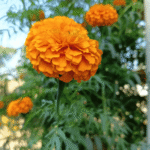
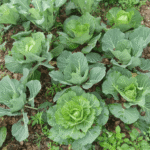
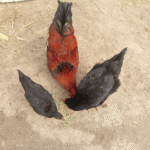
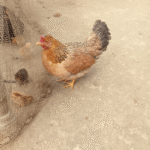


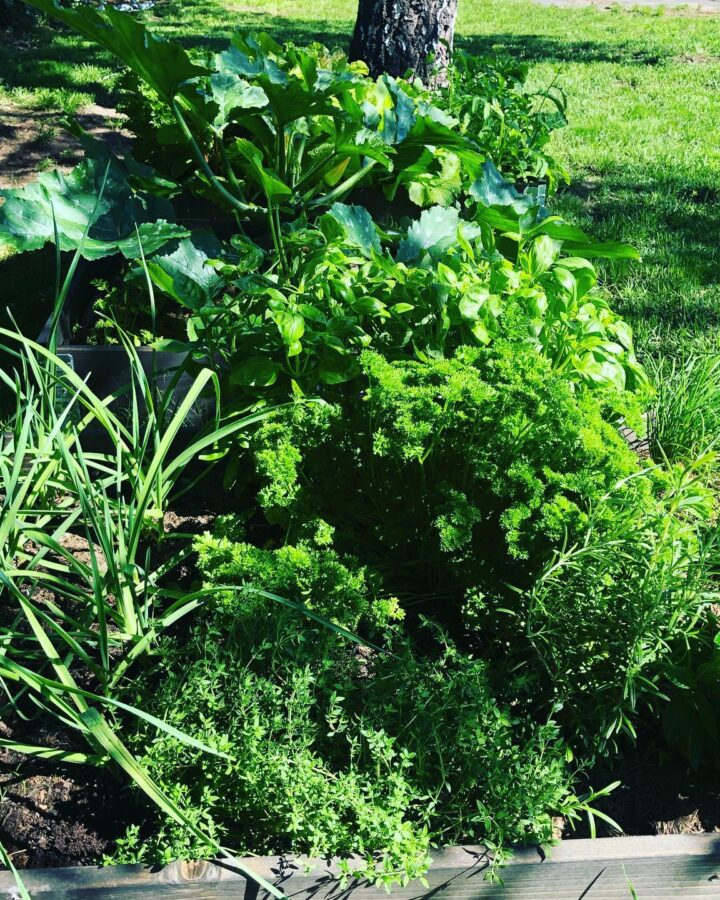

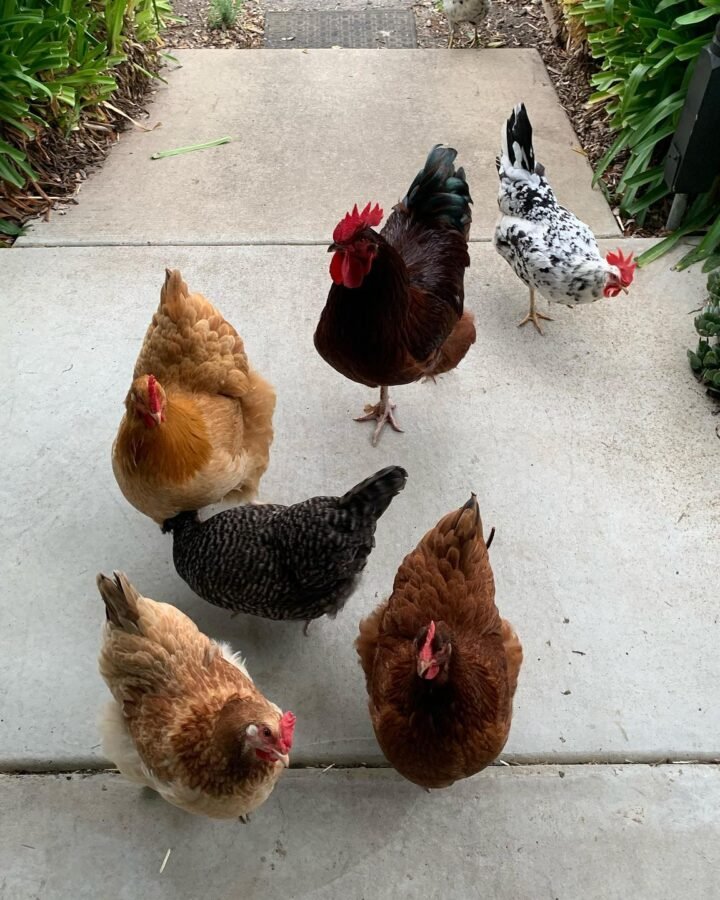
Leave a Reply